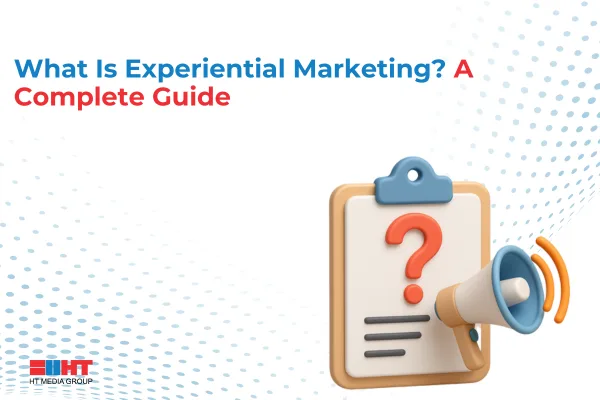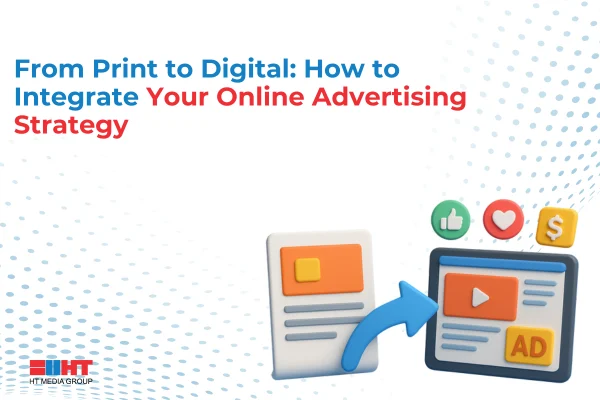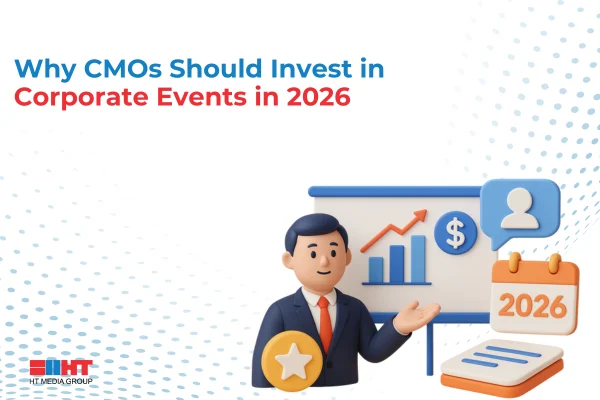- Summary: Retail marketing involves strategies and activities designed to promote products, attract customers, and boost sales while enhancing brand awareness and customer loyalty. Key aspects include understanding consumer behavior, optimizing product placement, pricing strategies, and leveraging data analytics to personalize campaigns. The primary goal is to create a seamless shopping experience through multiple channels like in-store promotions, digital platforms, and social media.Emerging trends are shaping the future of retail marketing. Omnichannel marketing integrates online and offline touchpoints, ensuring brands remain accessible across platforms. Personalization, driven by customer data, enables targeted promotions and tailored experiences, building stronger customer connections. Data-driven insights allow businesses to anticipate trends and refine strategies for maximum impact. Artificial Intelligence (AI) and machine learning technologies empower predictive analytics and automated campaigns, as seen in Cadbury’s hyper-personalized Diwali campaign.Enhancing customer experience (CX) remains critical, focusing on efficient processes and responsive services to foster loyalty. Social commerce leverages platforms like Instagram and TikTok for direct sales and brand engagement. Augmented Reality (AR) and Virtual Reality (VR) transform the shopping journey with immersive experiences. Additionally, sustainability and ethical practices are increasingly vital for attracting environmentally conscious consumers.
Retail marketing is vital for any Indian retail business to stay competitive. As we enter 2025, the retail industry in India is evolving rapidly, driven by changing consumer habits, technology, and market dynamics. In this article, we’ll discuss the top retail marketing strategies for 2025. From embracing omnichannel experiences to using data-driven insights and personalisation, Indian retailers must innovate to meet customer expectations. Did you know that 81% of retail shoppers in India research online before buying, and 77% use a mobile device to search for product?
(source: Invoca retail marketing statistics)
Know More About Retail Marketing
- How Should Retailers Deal with the Second Wave?
- How Augmented Reality Delivers a Holistic Retail Experience to Customers
- Retail Stores of the Future: 5 Ways 5G Will Revolutionize Customer Experience
- Join us as we explore strategies to drive growth and build brand loyalty in India’s dynamic retail landscape of 2025.
-
What Is Retail Marketing?
Retail marketing encompasses all strategies and activities undertaken by retailers to promote their products and attract customers to make purchases. It involves understanding consumer behaviour, market trends, and competitor analysis to devise effective marketing campaigns. Retailers use various channels such as in-store promotions, digital marketing, social media, and traditional advertising to reach their target audience. The goal of retail marketing is not only to increase sales but also to enhance brand awareness, build customer loyalty, and optimize the overall shopping experience. Key elements include pricing strategies, merchandising techniques, customer service initiatives, and leveraging data analytics to personalize marketing efforts. In essence, retail marketing strategy revolves around creating compelling offers, engaging with customers across multiple touchpoints, and adapting swiftly to market dynamics to stay competitive and relevant.
Functions of Retail Marketing
Retail marketing encompasses various crucial functions aimed at maximizing sales and enhancing brand visibility within the competitive retail landscape. At its core, retail marketing strategy revolves around understanding consumer behaviour, optimizing product placement, and crafting compelling promotions.
Firstly, consumer behaviour analysis forms the bedrock, helping retailers grasp purchasing patterns, preferences, and trends. This insight guides decisions on product assortment, pricing strategies, and promotional campaigns tailored to meet consumer needs effectively.
Secondly, product placement and merchandising ensure products are strategically positioned within stores or online platforms to attract attention and encourage purchases. This involves meticulous planning of shelf space, digital storefronts, and visual merchandising techniques to optimize visibility and appeal.
Lastly, promotional activities such as discounts, seasonal offers, and loyalty programs play a pivotal role in driving sales and fostering customer loyalty. These initiatives not only stimulate immediate purchases but also cultivate long-term relationships, reinforcing brand affinity and market presence.
In essence, effective retail marketing integrates these functions harmoniously to create a compelling customer experience and sustain competitive advantage in the dynamic retail environment.
Introduction to the future of retail marketing
The future of retail marketing is rapidly changing with technology and how people shop online. According to a recent report by HubSpot, currently, 27% of marketers use social selling tools, 23% work with influencers, and 22% use social media messages for customer service. As more people shop online, retailers are using websites and mobile apps to make it easier for customers to buy things. They’re also personalizing their marketing to better meet customers’ needs. With new technologies like virtual and augmented reality, the future of retail marketing in India looks promising. To learn more about these trends, check out the [HubSpotBlog](https://blog.hubspot.com/marketing/hubspot-blog-marketing-industry-trends-report).
By continuously monitoring the markets and staying informed about the strategies and tactics used by competitors, a retail business can anticipate changes and adapt its marketing strategies accordingly, differentiating from competitors, fostering continuous improvement, and seizing new opportunities, a retail business can gain a competitive edge and secure its success in the marketplace. In fact, in 2023, retail e-commerce sales made up 43.4% of overall retail e-commerce sales, showing an increase from 41.8% in 2022. To achieve this level of success, retailers can explore the best retail marketing strategies, as outlined in the ever-evolving retail landscape of 2025.
{Source: https://www.analyticssteps.com/blogs/introduction-omnichannel-marketing}1. Omnichannel Marketing:
The fact that nearly 75% of people who shop in physical stores rely on their smartphones while they’re in the store shows how much technology is shaping our shopping habits. This means businesses need to adapt by making sure they’re available across different platforms like online, mobile apps, social media, and physical stores. It’s not just a trend anymore; it’s a must-have retail marketing strategy. By doing this, businesses can better connect with customers, build trust, and boost sales. One example of an omnichannel marketing success story is OYO and HT Media’s case study. OYO launched a series of non-sales print ads in Hindustan Times in 2020 and 2021, aimed at building brand trust and driving positive word-of-mouth. These retail advertising examples were supported by corresponding digital efforts and successfully increased brand consideration for OYO.
2. Personalisation
Brands can bring in personalisation in their marketing campaigns by leveraging customer data and tailoring bespoke experiences that resonate with their target audience. Tactics such as personalised product recommendations, targeted messaging, and customised promotions help forge deeper connections with customers, ultimately driving engagement and conversions.
Today’s consumers expect brands to understand and anticipate their needs. Personalisation in businesses can create meaningful interactions that foster loyalty and long-term relationships with customers.
3. Data-Driven Insights
In the age of big data, leveraging data analytics and insights is crucial for understanding customer behaviour and making informed marketing decisions. Advanced analytics tools enable businesses to extract actionable insights from vast amounts of data, helping them identify trends, anticipate customer needs, and optimise marketing strategies for maximum impact.
By harnessing the power of data-driven insights, businesses can gain a competitive edge in today’s dynamic marketplace, driving growth and success.
4. Artificial Intelligence (AI) and Machine Learning
AI and machine learning technologies are revolutionising retail marketing by enabling predictive analytics, personalised recommendations, and automated marketing campaigns. These technologies empower businesses to deliver relevant and timely content to customers, enhancing engagement and driving conversions.
Cadbury’s AI-based marketing campaign during Diwali is a notable example of how AI can be used in advertising. The campaign allowed local store owners to create personalised ads for their shops featuring Shah Rukh Khan for free, using the power of AI and machine learning. This was made possible through a partnership with an Indian AI startup called Rephrase AI, which specialises in synthetic media production. The campaign leveraged generative AI technology to create hyper-personalised ads, enabling small businesses to promote themselves with the help of a celebrity figure like Shah Rukh Khan, which would have been financially unattainable otherwise.
This campaign exemplifies how AI and machine learning can be harnessed in retail marketing strategy to create impactful retail advertising examples.
5. Customer Experience (CX) Enhancement:
Enhancing the overall customer experience is essential for building brand loyalty and driving repeat business. Strategies such as fast and efficient checkout processes, user-friendly website navigation, responsive customer service, and post-purchase support are critical for creating positive interactions with customers at every touchpoint.
By prioritising customer experience, businesses can differentiate themselves from competitors and foster long-term relationships with customers. These efforts are crucial elements of effective retail marketing strategy and can be illustrated with retail advertising examples that highlight successful customer engagement tactics.
6. Social Commerce
Social media platforms have emerged as key channels for driving sales and engaging with customers. Retail brands must include a mixed social media marketing strategy with a variety of engaging campaigns such as shoppable posts, influencer collaborations, and community-building efforts, etc. enabling businesses to connect with customers in meaningful ways, driving brand awareness and loyalty. By leveraging social commerce, businesses can tap into the power of social media to drive sales and grow their customer base.
7. Augmented Reality (AR) and Virtual Reality (VR)
AR and VR technologies are transforming the shopping experience by enabling virtual try-on experiences, interactive product demonstrations, and immersive storytelling. These technologies provide customers with a more engaging and immersive shopping experience, driving engagement and increasing sales. AR and VR, businesses can create memorable experiences that set them apart from competitors and drive customer loyalty.
8. Sustainability and Ethical Practices
With growing consumer demand for sustainable and ethically sourced products, businesses must prioritize sustainability in their marketing efforts. By incorporating sustainable practices into their supply chain and communicating their commitment to sustainability, businesses can attract environmentally-conscious consumers and differentiate themselves in the market. This approach is crucial for developing an effective retail marketing strategy that resonates with today’s conscientious consumers.
Frequently Asked Questions
What are the most effective retail marketing strategies for 2025?
The most effective retail marketing strategies for 2025 encompass a multi-channel approach, combining online and offline efforts. Incorporating personalised experiences, leveraging technology, and sustainability are key elements. Successful strategies involve understanding and catering to evolving consumer preferences, creating seamless omnichannel experiences, and utilising data-driven insights to make informed decisions.
How can retailers use social media platforms to enhance their marketing strategies in 2025?
Social media will continue to be a powerful tool in 2025. Retailers can optimise their presence by creating engaging and authentic content, fostering community through user-generated content, and utilising shoppable features. Leveraging social commerce, incorporating AR for virtual try-ons, and emphasising customer service through social channels will contribute to a holistic and effective social media marketing strategy.
What role will technology play in retail marketing strategies in 2025?
Technology will be integral to retail marketing in 2025, driving innovation and efficiency. Augmented Reality (AR) for immersive shopping experiences, Artificial Intelligence (AI) for personalised recommendations, and Internet of Things (IoT) for enhanced connectivity are key. Retailers must adopt tech-driven solutions for seamless transactions, inventory management, and customer engagement, creating a dynamic and responsive marketing environment.
How can retailers utilise data and analytics to optimise their marketing efforts in 2025?
Data and analytics will be crucial for retailers in 2025. Retailers should harness customer data to understand preferences, behaviour, and trends. Utilising predictive analytics for demand forecasting, optimising pricing strategies, and implementing targeted marketing campaigns based on consumer insights will enhance efficiency and drive ROI. A data-driven approach enables retailers to stay agile and responsive in a dynamic market.
What are some innovative approaches or trends in retail marketing that are expected to gain prominence in 2025?
In 2025, innovative retail marketing will witness the rise of experiential commerce, emphasising immersive and memorable shopping experiences. Sustainable and ethical practices will be central, appealing to environmentally conscious consumers. Live commerce, integrating live video with e-commerce, and gamification in marketing strategies are expected to gain prominence, fostering engagement and creating unique brand interactions.
Ready to take your brand to the next level? Connect with us today to explore how HT Media can amplify your presence across our diverse portfolio of 25+ brands and properties. Let's turn your brand vision into reality!















Comment